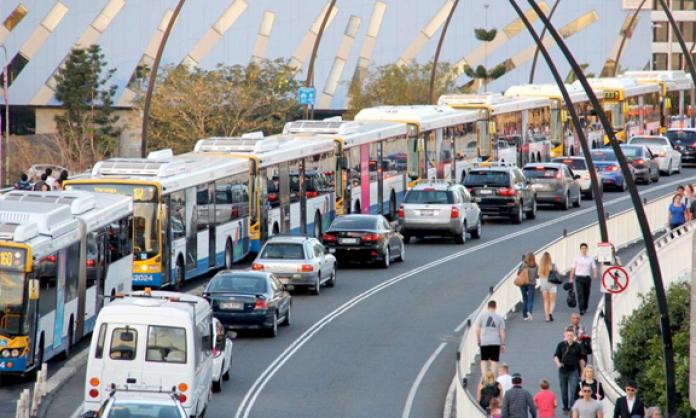For the first time in more than a decade, Brisbane bus drivers are taking industrial action. Seven months of fruitless enterprise agreement negotiations between the Rail, Tram and Bus Union and the Liberal Party-run Brisbane City Council have led to the major showdown.
After an early July vote in which more than 80 percent of drivers voted for action, stoppages started in mid-July. Along with strikes, the campaign also includes no fare days, when drivers travel their ordinary routes without collecting passengers’ fares. These, of course, have been very popular.
Public sentiment is with the drivers. Every respondent to a 27 July Courier Mail vox pop about whether drivers should be “allowed” to strike during the busiest time of the day said yes. “That’s the way to get noticed. The whole bus system would stop”, was one of the responses, typical of the others.
Drivers report that people on their buses are wishing them luck and expressing support for their fight. Students at the University of Queensland and Queensland University of Technology have been organising solidarity actions at university bus stops. “Solidarity to the bus drivers” signs have been spotted on display outside houses. A strike rally outside city hall on 2 August drew hundreds of unionists, including striking workers and supporters.
The success of the drivers’ campaign has forced council management into increasingly desperate moves. Managers have been walking around depots, trying to corner individual drivers for “friendly chats” in which it’s been reported that references are made to cutting hours. Despite the threats, particularly directed at casual workers, union membership has grown since the start of the industrial campaign. So have industrial action participation rates, though there remains a small group of non-union drivers refusing to join the actions.
The issues in dispute are safety, pay and conditions. Drivers want a 3.5 percent pay rise. The union is demanding more consultation over rostering, to help manage driver fatigue. It also wants more to be done to ensure drivers are safe at work. This has been an important issue in Brisbane since the racist murder of bus driver Manmeet Alister in October. Unfortunately, a shortcoming of the union’s safety campaign has been its failure to emphasise the racist nature of the attack on Manmeet.
The response to the drivers’ demands has been predictable. The council has run a smear campaign in the media, claiming that unionists are bullies who are putting passengers at risk.
Liberal mayor Graham Quirk, whose salary is about the same as that of the prime minister of Canada, has mounted a scare campaign claiming that workers’ wage demands will lead to rate rises.
The council is maintaining its refusal to agree to union demands, and the union has refused to back down from any claims. Industrial action will continue. Remember to tell your bus driver that you support their fight for fair pay and safety next time you catch the bus in Brisbane.










